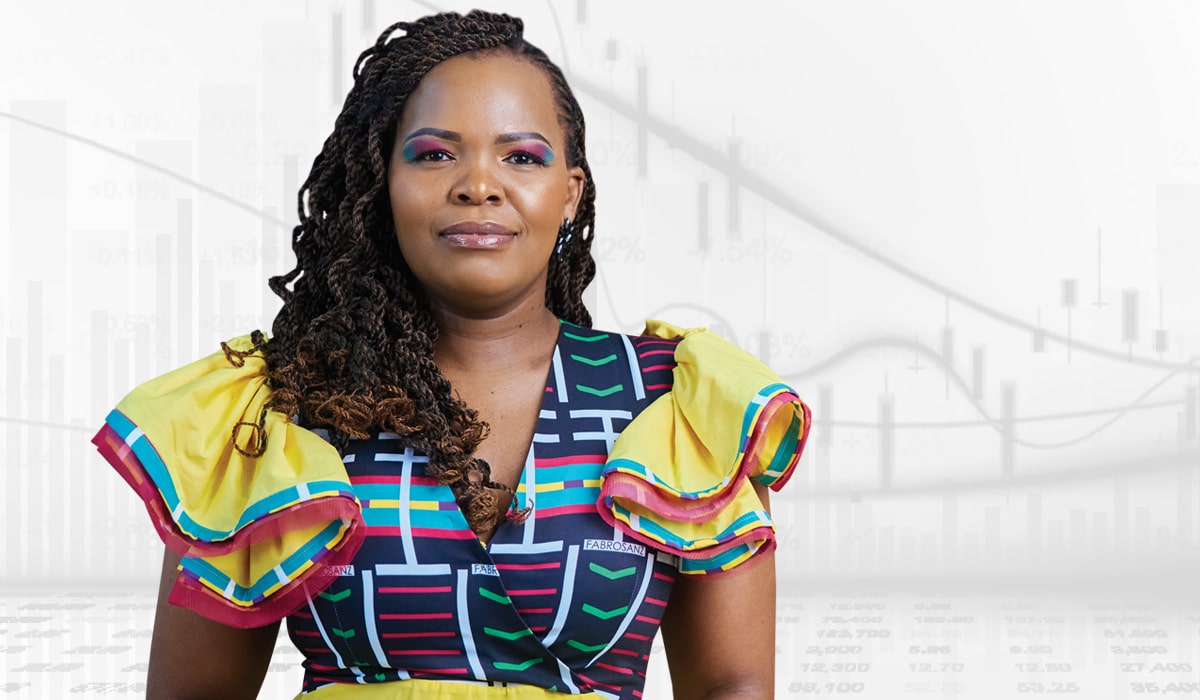In the male-dominated profession of data analytics, Nollie Maoto took her opportunities and landed a job she is truly passionate about. Here, she tells us more about all things data
Nollie Maoto was most of the way to becoming an accountant – she even completed three years of a Chartered Accountant degree – before realising that it wasn’t the field for her. A fascination with stock exchanges and the colourful data screens of Wall Street traders inspired her to study investing instead. Then, while working at a consulting firm, she developed a deep interest in analytics and data, which is the business of extracting key business information from very large sets of records and data.
Today she is the chief data and analytics officer for a division of FNB that boasts one of the biggest data analytics operations in South Africa. She spoke to Tech to explain what her job entails and debunked a few myths about the profession along the way.
How did you first get into data analytics?
While I was working in management consulting, I befriended our Business Intelligence team and started hanging around with them in my free time, like my lunches and breaks, learning about what they do. Seeing all these graphs and all of this data on their screens made me think that maybe this is where I was meant to be.
I knew how to code in C++ and Java, but they were coding in SQL, so I started teaching myself how to code in SQL. I was creating reports and dashboards, but I had nobody to share them with. Eventually, while working with one of our clients, I did a situational analysis and was advised to share my insights with our managing director, but I couldn’t get a meeting with him. After months of trying, I found an opportunity to present my findings. The MD called in a few of the other executives and none of them could understand why I wasn’t doing this as my job. And that’s honestly how I fell into data analytics.

What is it about your role that excites you?
It’s the fact that you I can add so much value with the work I do. I often joke that we are the brains behind this operation because every area within the business relies on us. We work with operations, we work with legal risk and compliance, we work with marketing, we work with growth and sales; every single functional area of the business uses us. I think that’s why I am passionate about it.
As chief data and analytics officer, my role is to make sure that our broader company data strategy is being implemented and that our work ties back into the bank’s business strategy. Our CEO, Jacques Celliers, acknowledges the importance of data and understands that no decisions should be made that are not underpinned by data, because the facts and the numbers don’t lie.
I estimate that the data-analytics community at FNB is about 2 000 people strong, which makes us one of the biggest data divisions compared to our competitors, who typically only have a few hundred people.
What skills do you need for this kind of work?
One of the myths I want to debunk is that you need to study maths and stats to be in this industry. This is not the case. Under the dataanalytics umbrella there are many different roles people can go into. Depending on where your strengths lie, you can go the more technical, number-crunching route, or you could consider becoming a data steward, a records manager or a data privacy officer. These are just a few examples of the more non-technical data roles.

What has your experience been as a woman in a male-dominated field?
While I was climbing the corporate ladder, I was often the only female and person of colour in the room, which was not great. I would be undermined, and the value of my contributions overlooked. But over the years, I have learned to show who I am through the quality of my work.
So even if you don’t like me or think I’m not competent because of who I am, what you cannot do is refute the quality of my work and what I’m actually producing. Because of this, I am passionate about trying to get more women into this space. Globally, there is only 24% female representation in the tech industry, only 18% in data analytics and only 13% in the data-science field. This needs to change.
Your advice for young women looking at data-based careers?
Just start. If this is something you’re interested in, do your research, take a course and get started. Also, one of the things that I’ve learned in life is that, if someone says ‘no’ when you ask for something, it’s not the end of the world. It won’t crush you. Honestly, I believe it’s the ‘no’s that make us stronger
Drowning in data
An almost unimaginable amount of data is created every day. And it is only set to increase. By 2025, it is estimated that 463 exabytes – or 463 billion gigabytes – of data will be created each day, worldwide. This is the equivalent of more than 200 million DVDs being filled each day.







